Technical writers often name interviews with subject matter experts (SMEs) as one of the toughest parts of their job.
And with good reason. A lot hinges on a short conversation with these experts, and extracting all the necessary information can sometimes be challenging.
Never fear, though.
We’re here to help with six easy and actionable tips you can apply to your interviewing methods to ensure you get everything you need while providing an enjoyable experience for both you and your interviewee.
Let’s start with some effective goal-setting.
Determine the Goal of the Interview
Before you do anything else, try to formulate a clear goal or purpose for your interview and share it with the subject matter expert (SME) you’ll be meeting with.
This should give them a good idea of what the interview will be about and allow them to revise any materials they may have and prepare accordingly.
It will also help you keep the interview under control and prevent you from trying to cover too much ground and getting low-level information.
You can start setting your goal by deciding what type of document you’ll be writing.
There are many formats to choose from:
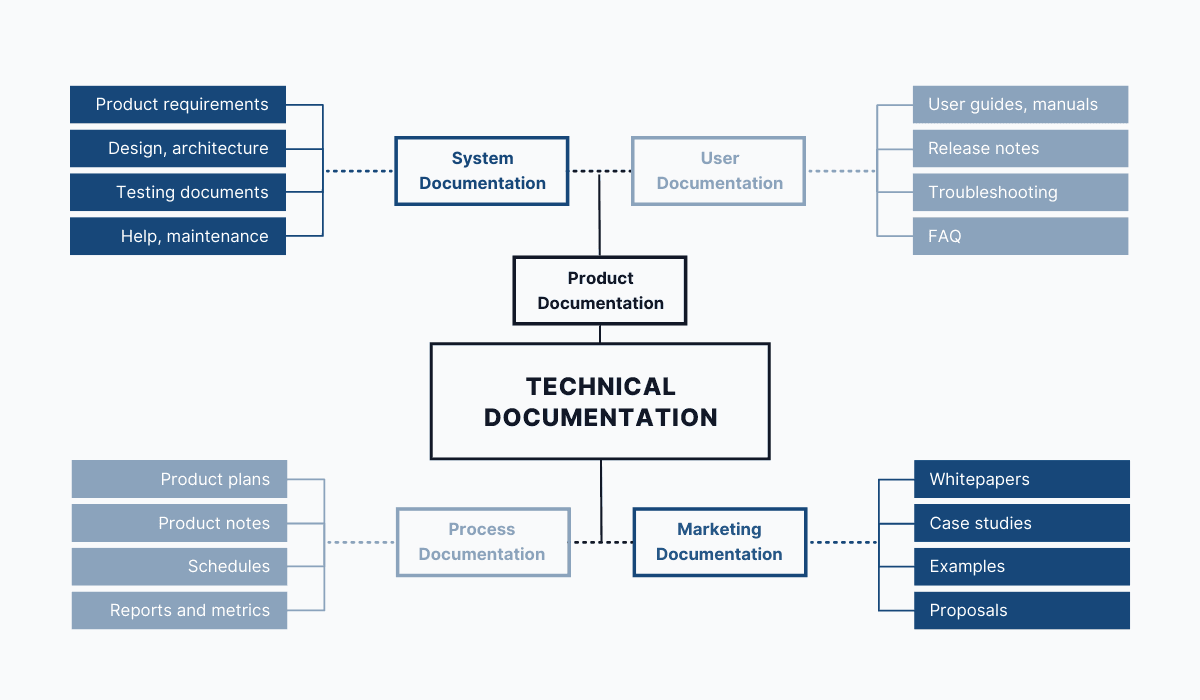
Source: Archbee
This will inform and guide the process of drafting questions for the interview because different document types contain different levels of technical knowledge and present knowledge in different ways.
For example, if you’re writing a troubleshooting guide, you’ll want to concentrate on the problematic aspects of the user experience.
If you’re writing an instruction manual for the product, what you’ll be looking for is a step-by-step demonstration of how the product works.
Once you’ve decided on the document type, see if you can provide some more detail about what the outcomes of the document will be, who the document will serve, and what you hope to gain from the interview.
If that’s a little vague, let’s illustrate with an example from an experienced technical writer, Karen Smock.
This is how she formulates her goals for a white paper in preparation for an SME interview:

Source: LinkedIn
In Smock’s example, the goal is elegantly formulated in just two sentences that can be sent to the expert, who won’t have any trouble understanding what is expected of them and how to prepare for the interview.
The goal of your interview shouldn’t be too difficult to determine, but it will make a great difference once it’s time to sit down and talk.
Research the Topic Beforehand
SMEs such as developers, managers, and tech leads are busy people. That’s why it’s a good idea to cover all of your bases and do some proper research before the interview starts.
This is something veteran documentation experts, such as Connie Malamed, agree on:
“At all costs, don’t walk into a meeting with an SME knowing nothing about the subject. Your questions will be more intelligent, and you’ll be better able to drill down if you are a little knowledgeable about the content.”
Now, this doesn’t mean you have to become an expert on the topic overnight.
However, it’s a good idea to do some secondary reading on the subject, especially the parts you’re not fully familiar with.
For example, if you’re interviewing a developer working on your product’s API, why not brush up on API terminology, so you don’t get caught off guard during the interview?
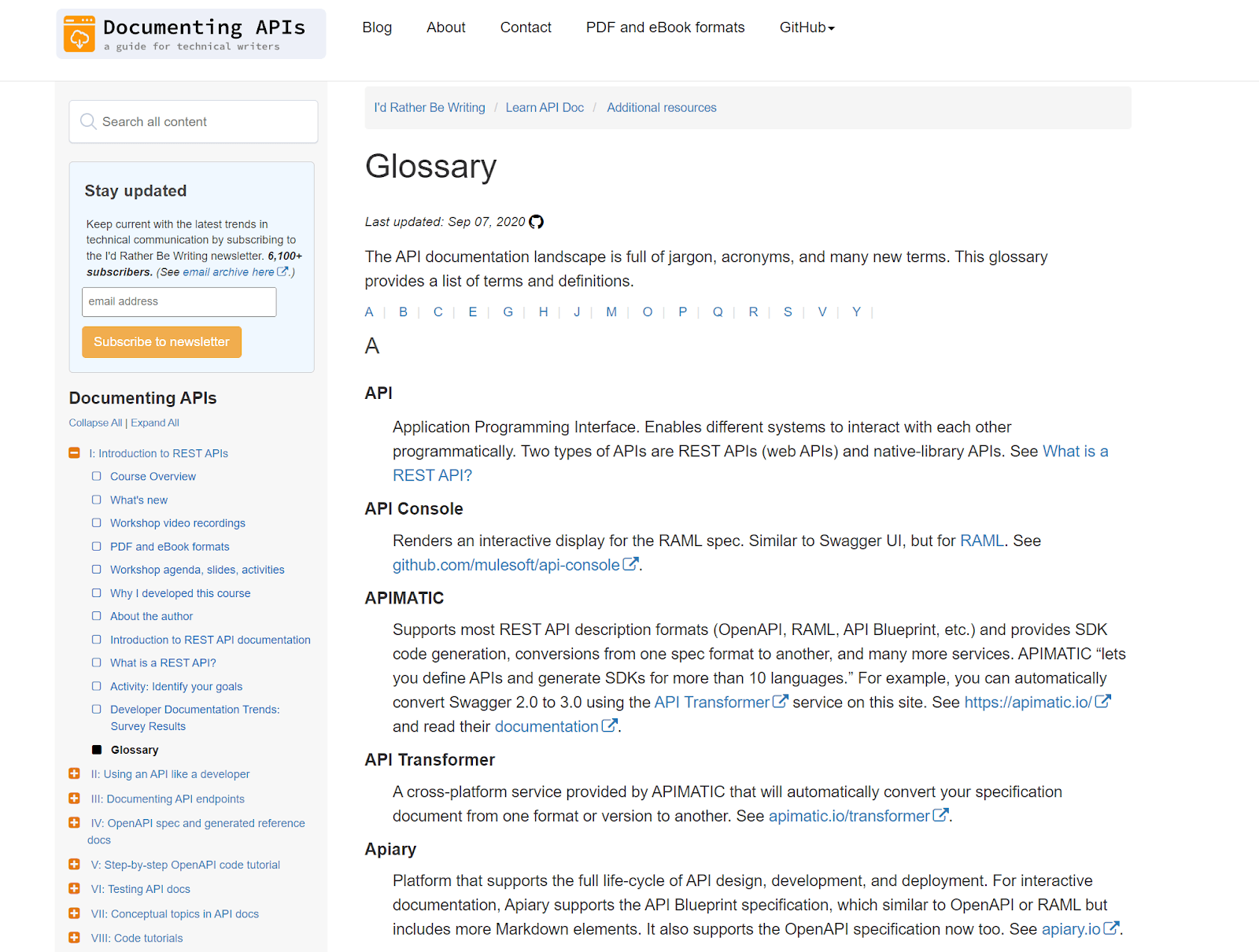
Source: I’d Rather Be Writing
This step can also include reviewing any internal resources you might have, such as the existing documentation on the product and company memos.
If you have any programming knowledge, it wouldn’t hurt to look at developer comments and notes, as well as the code itself (if applicable).
Another good idea is to explore the product or feature yourself to get the end-users perspective on it.
This will give you a chance to find aspects of the product that aren’t intuitive to use and therefore need more comprehensive explanations in the documentation.
For example, let’s say you’re documenting a bookmarking app, such as Raindrop.
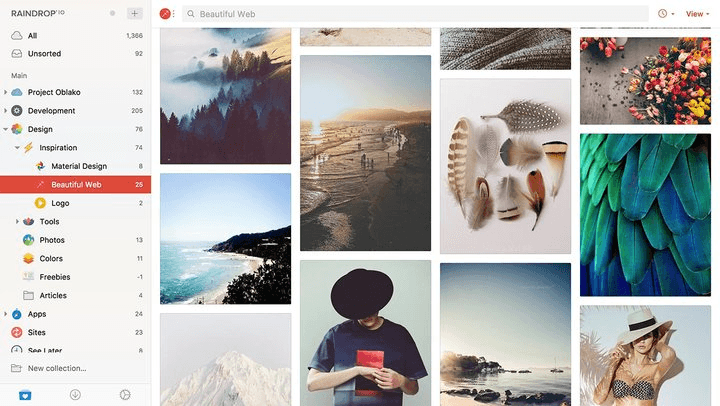
Source: Raindrop
The interface is clear and easy to use, but after some exploration, it occurs to you that you’d probably like to import your existing bookmarks into the app.
However, there’s no clear way to do that. It might be a good idea to ask your SME exactly how to import old bookmarks so that new users don’t struggle with this action.
Their answers will then form the basis for a dedicated article in the product’s documentation.
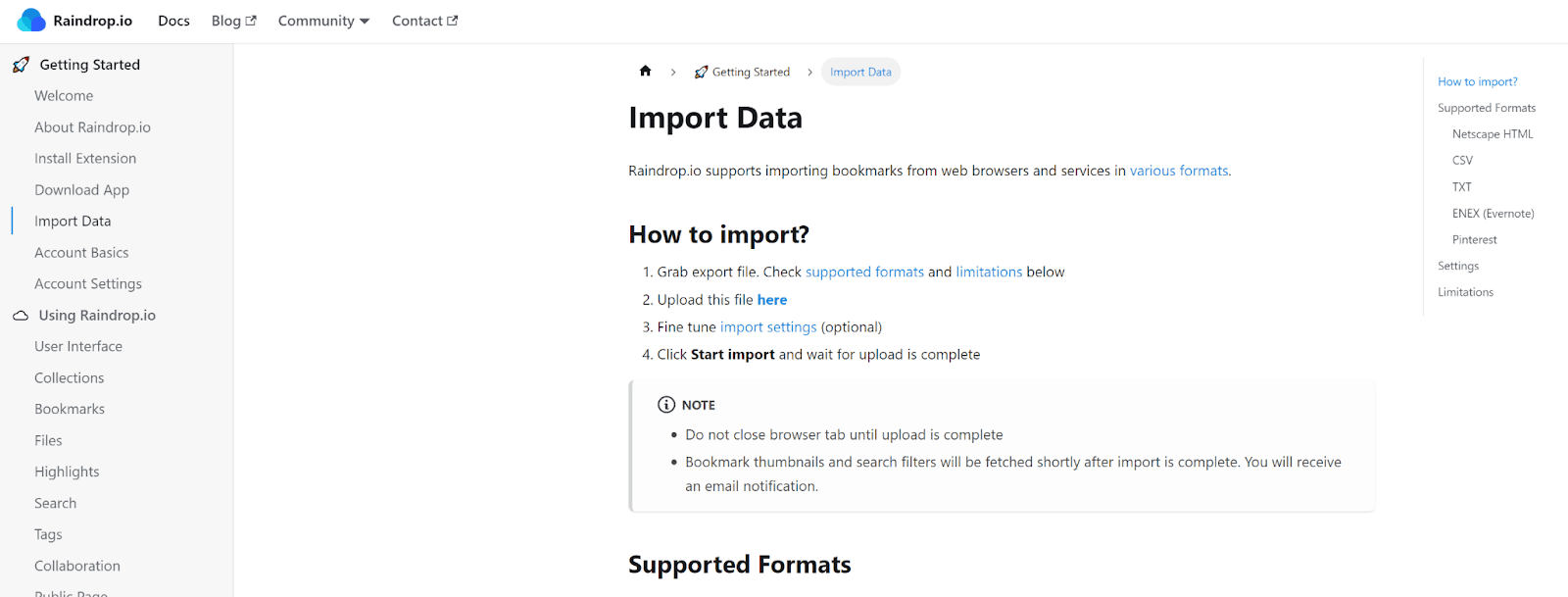
Source: help.raindrop
Remember, coming into the interview unprepared and asking questions that could have been answered with a little reading is sure to annoy your SME and waste everyone’s time.
So, do some research beforehand and ensure a positive experience for both you and your expert.
Prepare the Questions in Advance
It’s important that you prepare your questions in advance and send them to the expert before the interview because you want to give them time to prepare their answers ahead of the meeting.
Otherwise, the answers you get might not be accurate or up to date.
Seeing how you’ve determined the goal for the interview and done some research, you should already have a good idea of what you want to ask the SME during the interview.
The only thing left to do is to put your thoughts in order and formulate your questions in a clear and easy-to-understand way.
Here are some pointers for doing that.
Firstly, it might be a good idea to create a generic template of questions you can use for every SME interview.
This will ensure that you cover the basic information in the interview without forgetting to collect any key knowledge.
Have a look at this technical writer’s go-to interview questions from Reddit.
They do a good job covering all aspects of a product and fit well with the usual format of technical documentation, such as user guides, instructions, or FAQs:
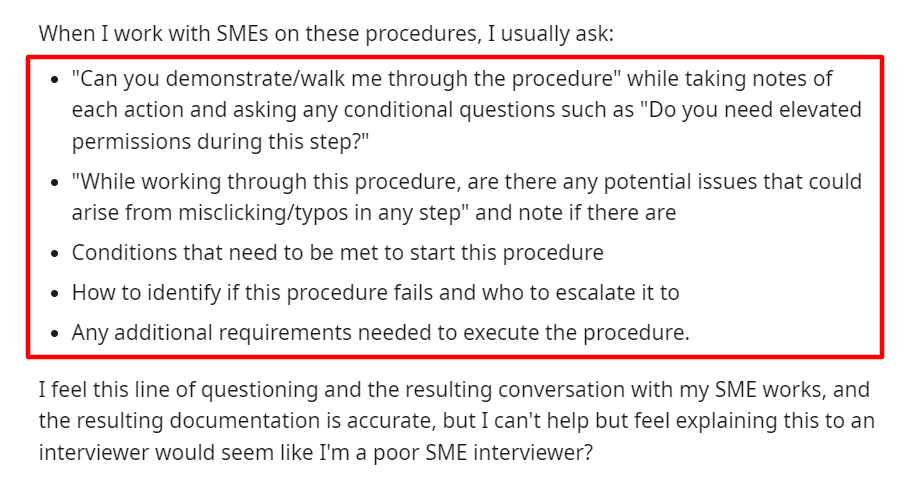
Source: Reddit
As you can see, all the important information is here: prerequisites, walkthroughs, known errors, conditions, results, and so on.
Also, be careful how you structure your questions to get exactly the answer you were looking for.
There’s a neat trick you can use that can help you connect your questions to the right cognitive processes in your interviewee. It’s called the Taxonomy of Cognitive Domain:
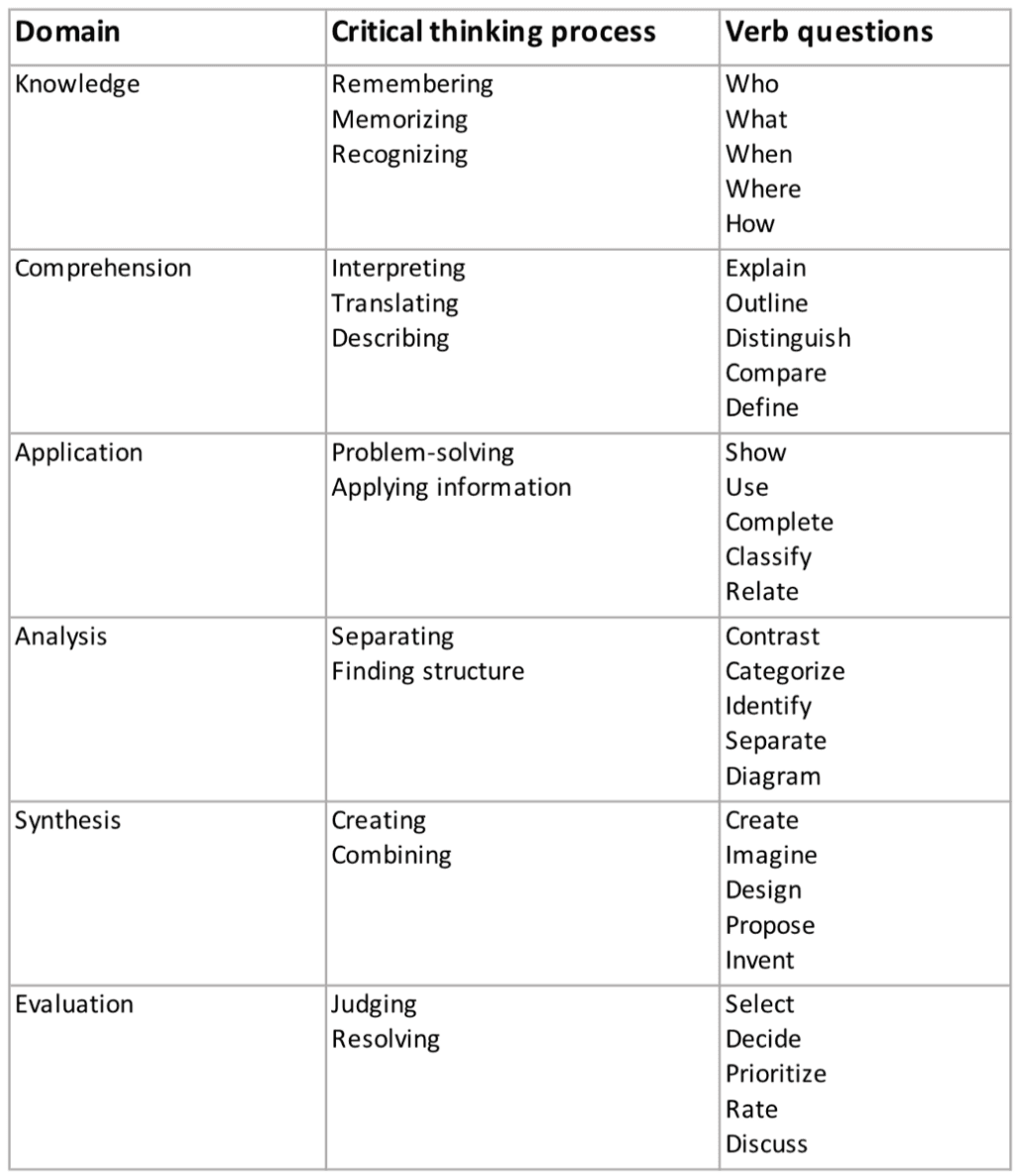
Source: UXdesign
You can use it as a simple reference.
For example, if you want your expert to walk you through a procedure, you might get a more complete and accurate answer if you ask them to “explain” or “show” you how something is done, rather than simply asking: “How is this done?”
Finally, try to avoid some bad question formats, such as:
- Leading questions (where the answer is already contained in the question)
- Double-barreled questions (confusing questions that are actually two questions in one and can’t be answered in one way)
- Closed questions (yes or no questions that will prevent the interlocutor from providing a complete, thorough explanation)
All of this might seem like overkill for a simple interview process, but it should ensure you have an enlightening, comfortable meeting with your SME that provides enough information for you to write a comprehensive, quality document.
Set the Right Tone
An SME interview shouldn’t be a dry information extraction meeting. Quite the opposite, it works best when it’s a conversation between peers.
If you really want to get the best out of your interview, try to set the right tone and provide a comfortable setting for relaxed information sharing.
You’d be surprised how much you can get out of SMEs (even the shy ones) if you approach them the right way:
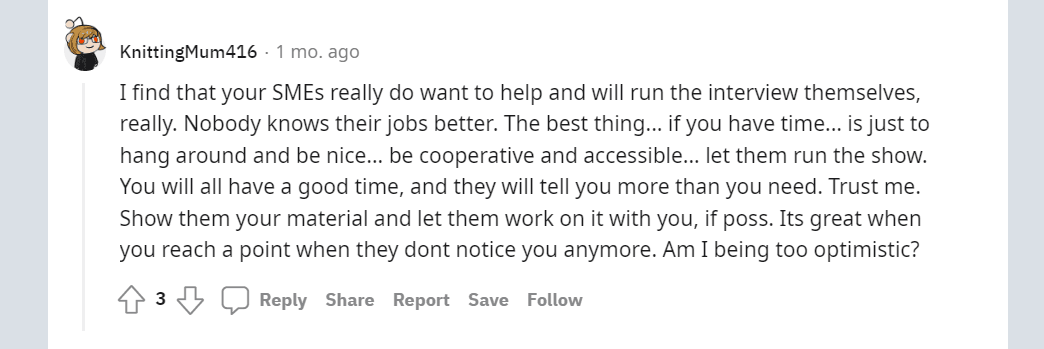
Source: Reddit
So, apart from being nice and accessible, what else can you do to make your expert comfortable enough to talk freely in your interview?
Well, this is a good opportunity to once again use your research skills.
For example, you can take a peek at the team section of your company’s webpage to find out about the person’s expertise and interests.
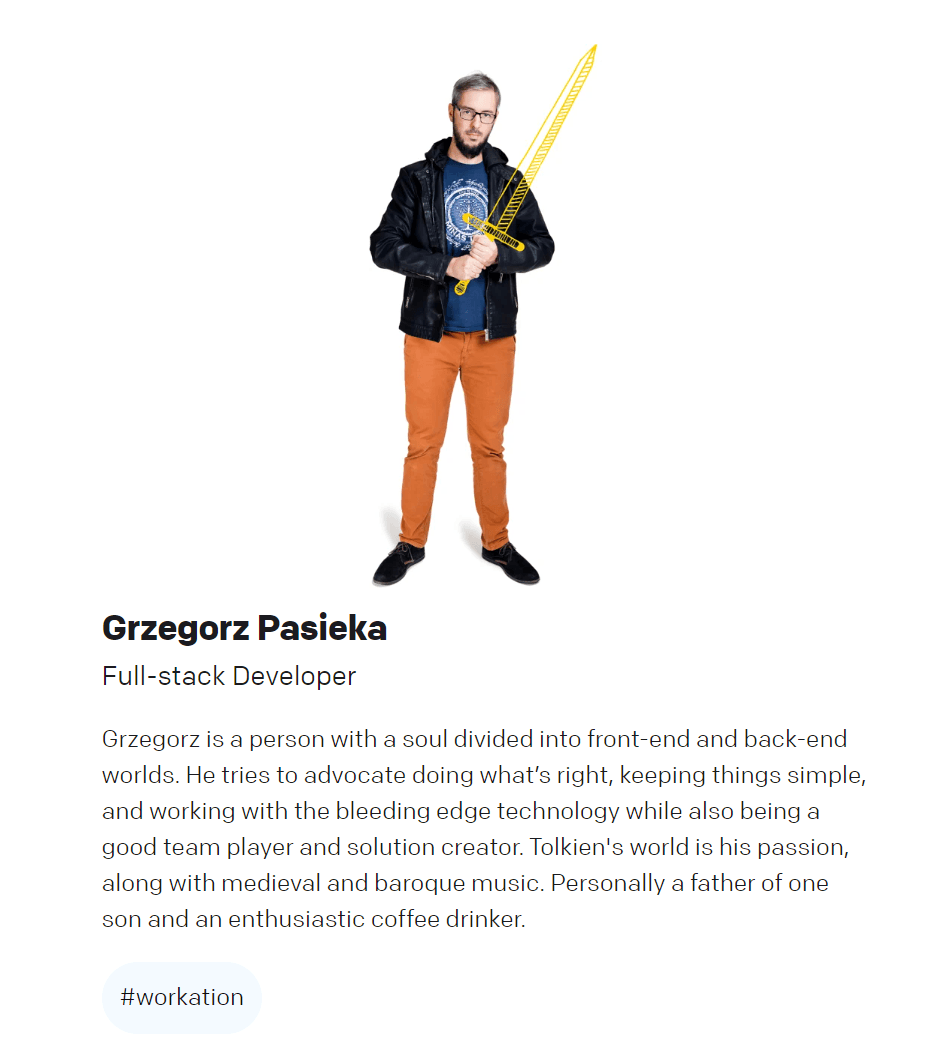
Source: LiveChat
If you were interviewing the developer from the above example, you’d have some great icebreakers to kick things off. You’d also know to bring a cup of coffee with you to the interview.
If your company website doesn’t have a meet-the-team page, visiting the interviewee’s LinkedIn page might also do the trick.
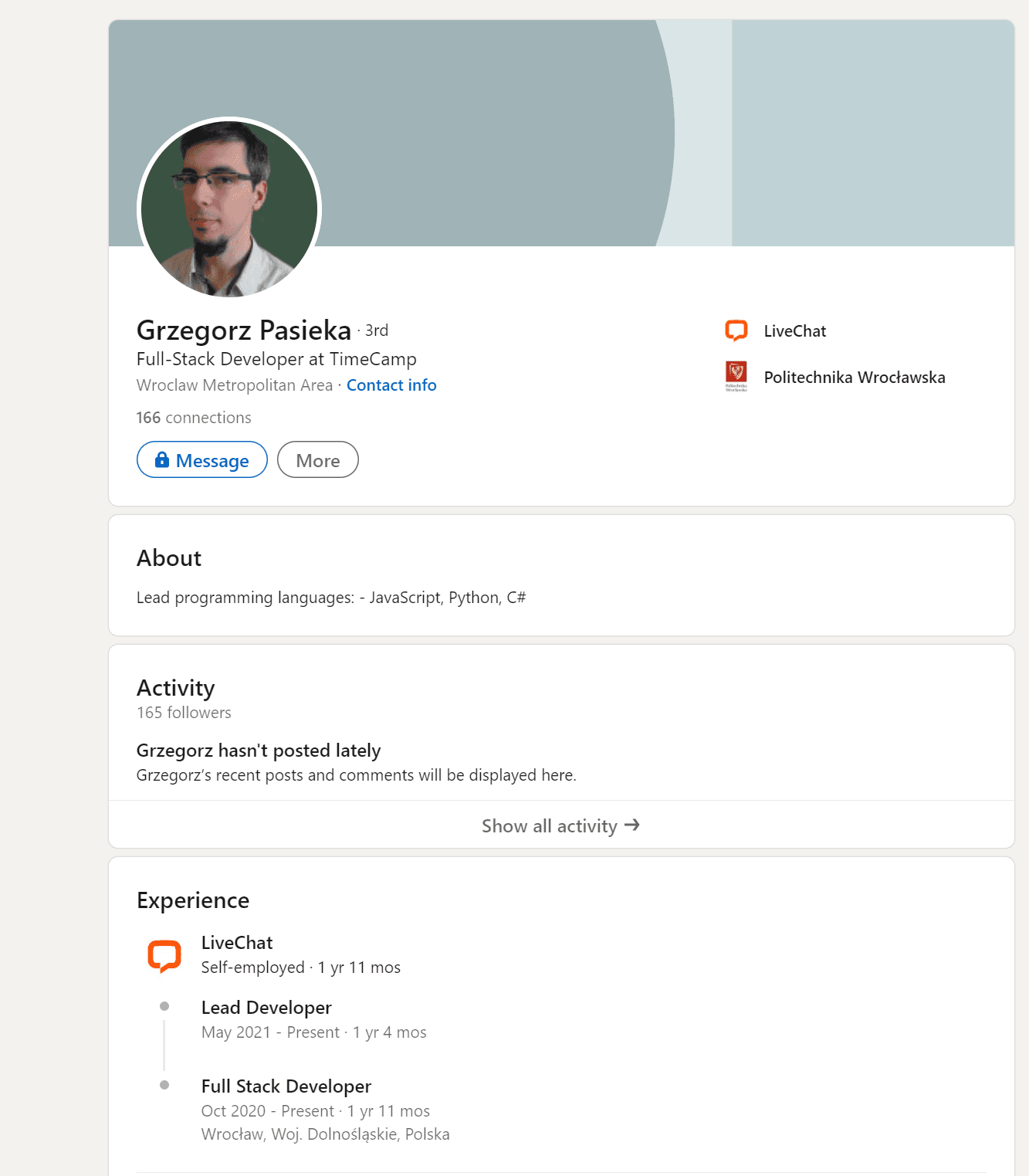
Source: LinkedIn
Once the interview starts, don’t forget to follow interview etiquette. The expert has taken the time out of their day to talk to you, so make sure you show them some professional courtesy.
Here are some tips for a polite interview:
- Start by welcoming the interviewee and thanking them for their participation.
- Repeat the goal of the interview and the purpose of your meeting so you’re on the same page.
- Indicate how long the interview will take.
- Try to avoid giving direct orders (“Explain to me how…”) and instead opt for the form of polite questions (“Could you please explain…”).
- End the interview by saying thank you and asking permission to contact the person should you need anything else.
By setting the right tone and providing an enjoyable interview experience, chances are high that you’ll get high-quality information for your documentation.
You’re also ensuring that the expert will gladly agree to potential future interviews.
Record the Interview
SME interviews can get very information intensive.
It would be a shame if you accidentally neglected to include an important piece of information in your documentation because it was absent from your notes.
Or worse yet, if you based your documentation on incorrect information.
Thankfully, there’s a simple enough solution: recording the interview.
At first glance, this might seem a little invasive. However, it’s a common practice a lot of technical writers follow to ensure they’ve captured all the relevant data.
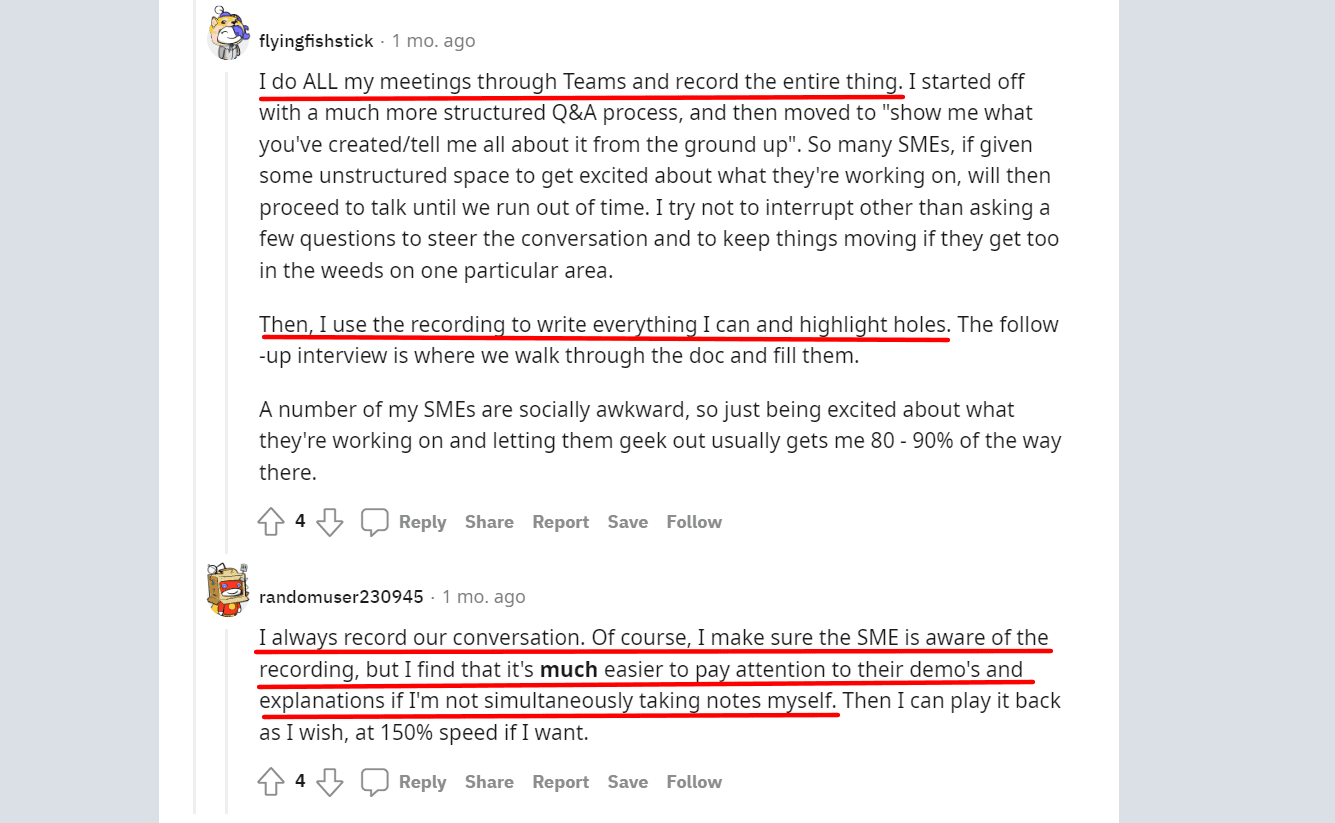
Source: Reddit
There are some interesting things to note from these two technical writers.
Firstly, recording an interview is quite easy to do.
You can use your phone’s dictaphone if you’re holding a live meeting or the record option on your communication software, such as Microsoft Teams, if you’re interviewing an SME remotely.
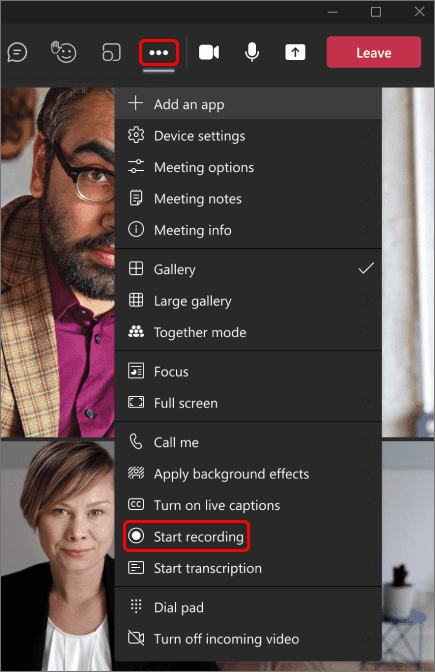
Source: support.microsoft
Secondly, recording the interview gives you the opportunity to let the interviewee lead the meeting and talk freestyle, using your questions to steer the conversation.
This is very much in line with what we said about asking open-ended questions and not restricting the interlocutor’s explanations to get a lot more information.
Another key takeaway here is the importance of asking permission.
This is something no SME should have a problem with, but recording a conversation without permission is, at the very least just bad manners, not to mention, illegal in most places.
Last but not least, it’s definitely true that you’ll be able to focus on the conversation much better if you’re not actively taking notes.
People usually talk much faster than you’re able to write, so focusing on taking notes is a surefire way to miss important information.
One more tip we can give you here is to record more than just the conversation.
SME interviews often contain comprehensive demonstrations and walkthroughs, so it’s smart to have a screen capture tool on hand.
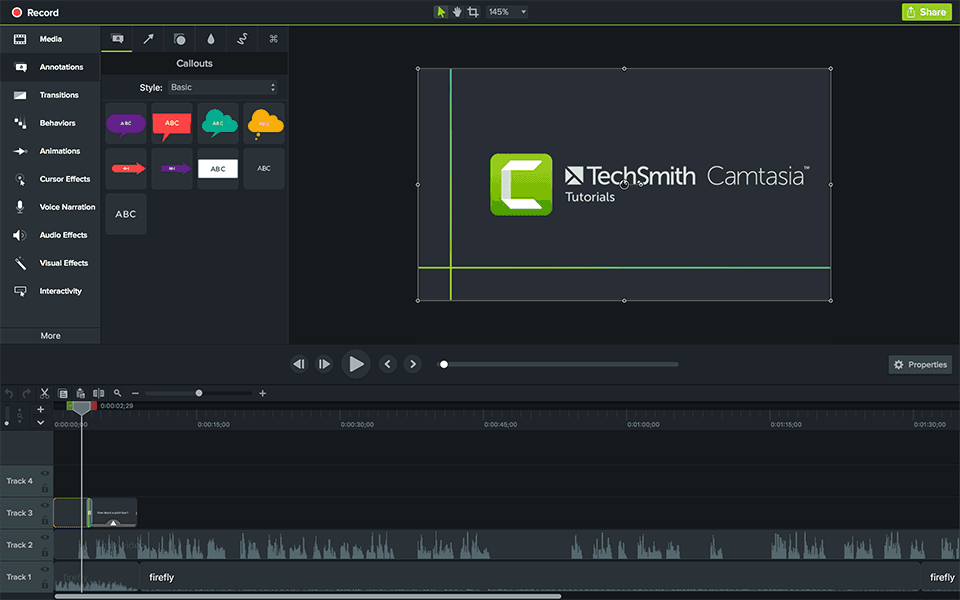
Source: TechSmith
Tools like Camtasia or Adobe Captivate will allow you to record your SMEs screen while they show you how to do specific tasks or use the product features.
You can later play those recordings and take your time to describe the actions in textual form for your documentation.
There’s nothing inherently wrong with taking notes during interviews with subject matter experts.
However, today’s technological tools will do a much better job of ensuring the information you gain is accurate and complete.
So, with your interviewee’s permission, don’t forget to record your SME interviews.
Follow Up on the Interview
In most cases, you’ll need to follow up with your SME after the interview to work out some residual details and get answers to any additional questions you might have.
Don’t worry, though. Follow-up interviews are a normal part of working with SMEs, and your request for additional information won’t annoy anyone.
Let’s take another look at the discussion from our previous section:
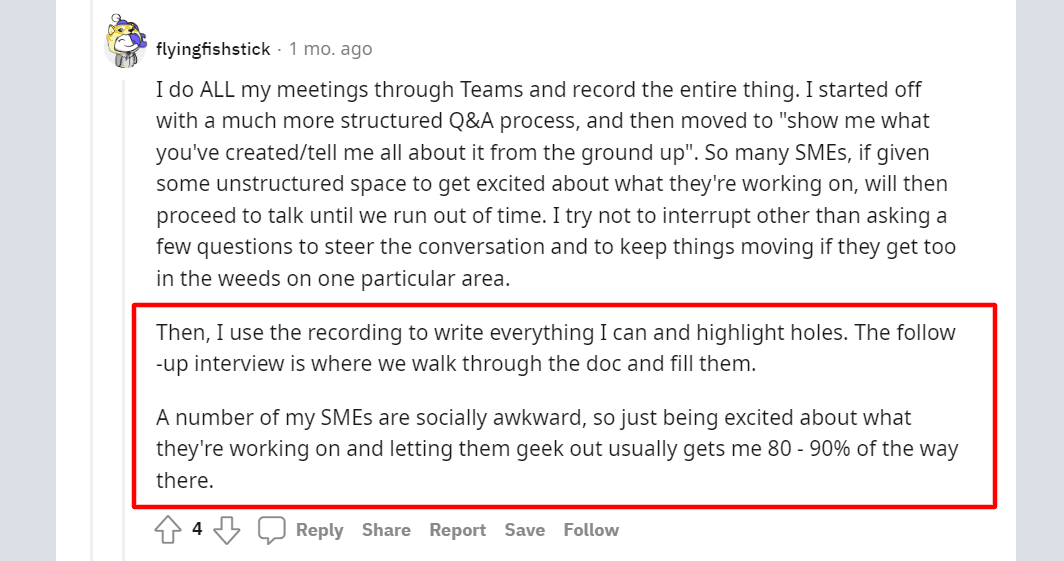
Source: Reddit
There’s a good practice to consider here.
The SME interview will usually give you most of the answers you need (80-90%, as this technical writer estimates), but a thorough writer will want to apply what they’ve learned from the interview.
For example, if your SME walked you through the installation process for a new feature, you might want to go back to your desk and go through the procedure yourself, following their exact instructions.
If you get stuck or get an unwanted result, that’s when you might want to follow up with the SME and find a solution to the problem.
But even if you don’t have any additional questions to ask and feel informed enough to draft your documentation, it’s still a good idea to follow up and ask the expert to review the document and confirm that everything is in order.
If you’re using quality documentation software with collaboration features to draft your document, you can follow up with your SMEs without having to set up a second interview.
For example, if you’re working with Archbee, you can simply tag your SME and request a review of the document.
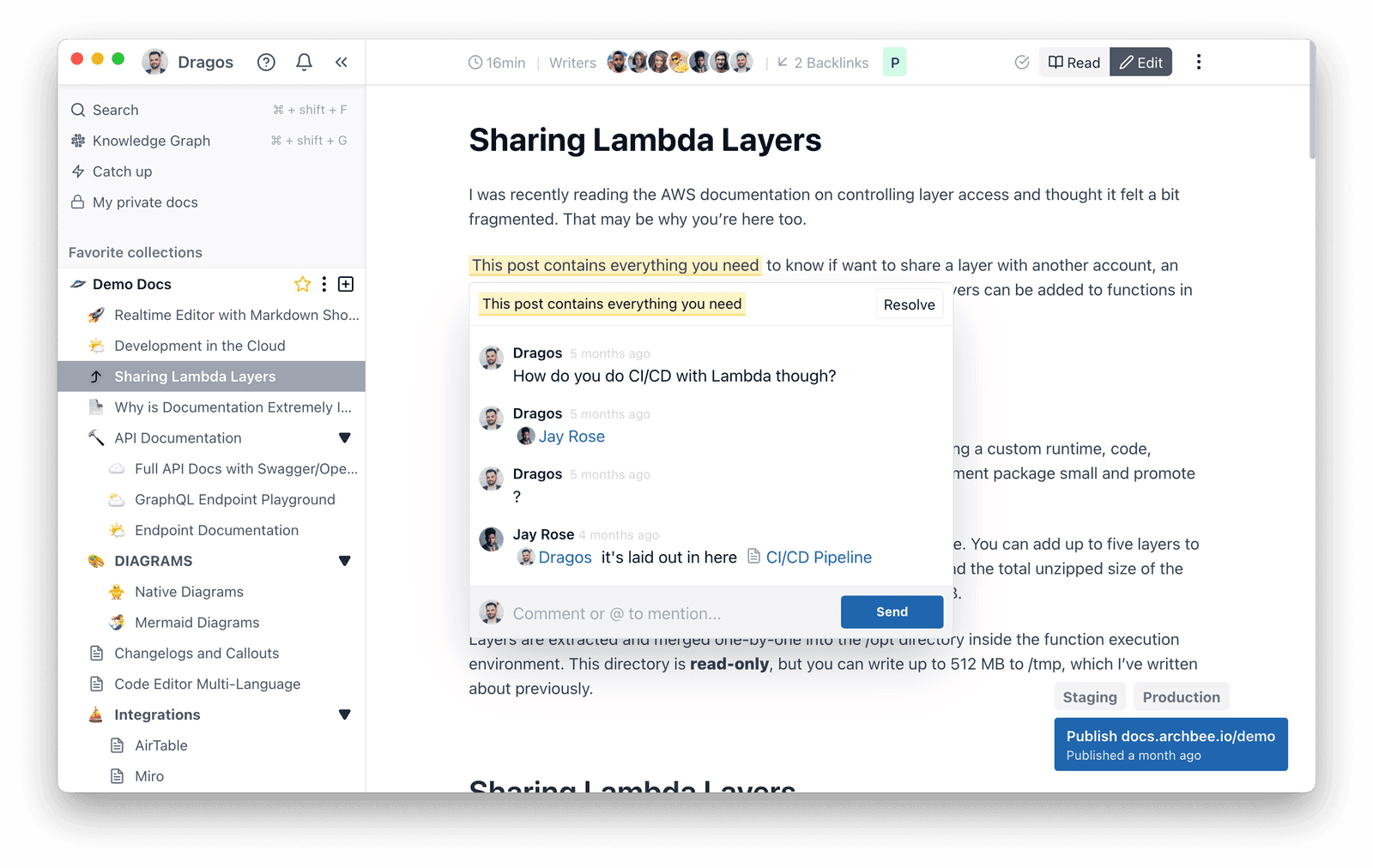
Source: Archbee
Your expert can chat with you right then and there on the document until you get the draft right, making following up a simple and efficient process.
Archbee will also allow you to mark documents as unverified and tag the SME to review them and mark them as verified and ready for publishing.
Source: Archbee on YouTube
In this case, you won’t even have to talk to the SME directly. Just ask them to verify the document once it’s done as you’re wrapping up the initial interview.
The point is that your interview with the SME probably won’t be your only point of contact during the creation of documentation for a certain feature. But that’s a good thing.
Following up with your SMEs takes the guesswork out of the writing process and ensures your documentation will be as accurate as possible when it’s time for it to be published.
Conclusion
SME interviews can be a sensitive matter, no doubt about that. In a busy company, even finding the time to sit down together can sometimes be quite complicated.
Add to that the need to extract the majority of complex product information in just one sitting, and it becomes clear why this is one of the most stressful tasks in the work of a technical writer.
However, it doesn’t have to be that way. In this article, we’ve given you six tips that should help you turn SME interviews into a comfortable, enjoyable, and, above else, efficient affair.
Follow our advice and start getting the most out of your SME interviews.
Frequently Asked Questions
A concise goal keeps everyone aligned and saves time. It tells the SME exactly what you need, who it’s for, and how their input will be used.
Benefits:
- Aligns scope and expectations so you get the right depth of detail
- Helps the SME prepare the best examples, demos, and artifacts
- Keeps the conversation focused and avoids low‑value tangents
- Guides your question list based on deliverable type (troubleshooting vs. how‑to), audience, and outcomes
- Reduces rework and follow‑up
What to share in advance:
- Deliverable (e.g., quickstart, API guide, troubleshooting article)
- Audience and their skill level
- Intended outcome for the reader
- In/out of scope topics
- Timeline and how you’ll use the information
Copy/paste goal template:
Goal: Create a [deliverable] for [audience] so they can [outcome]. Scope: Cover [topics]; exclude [out-of-scope]. Success looks like: Readers can [measurable result]. Timing: Draft by [date]; review by [date].
